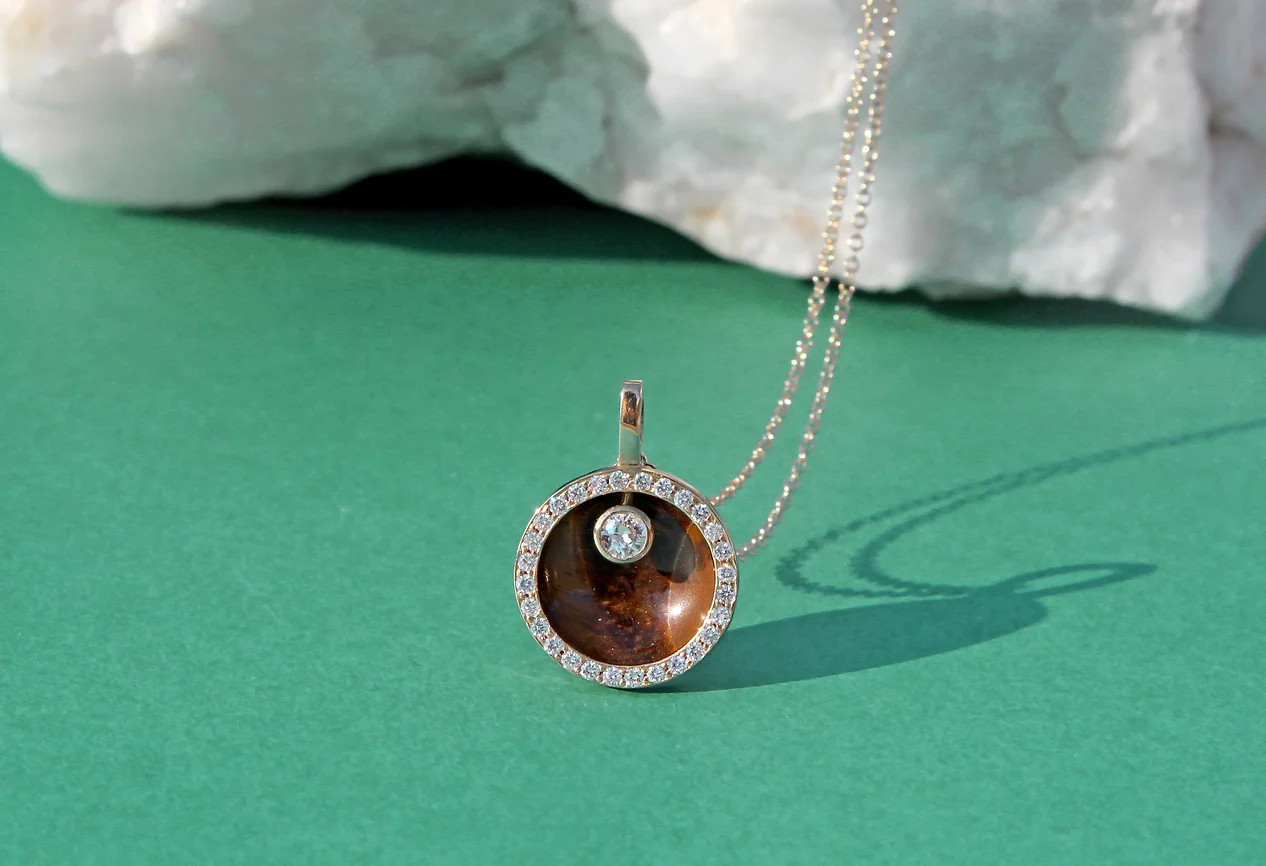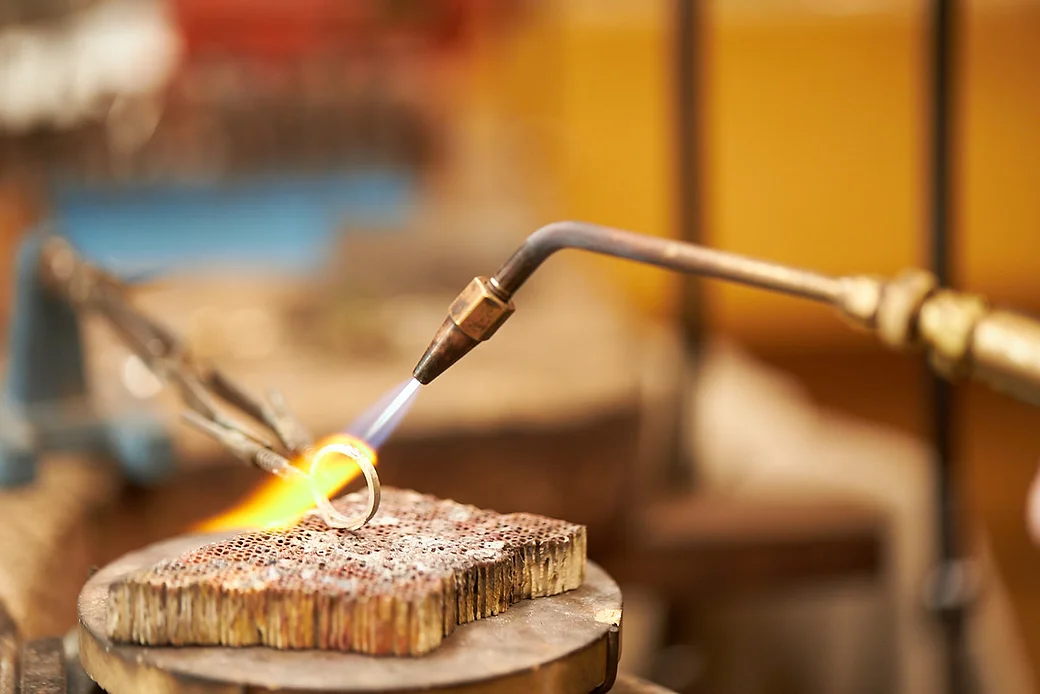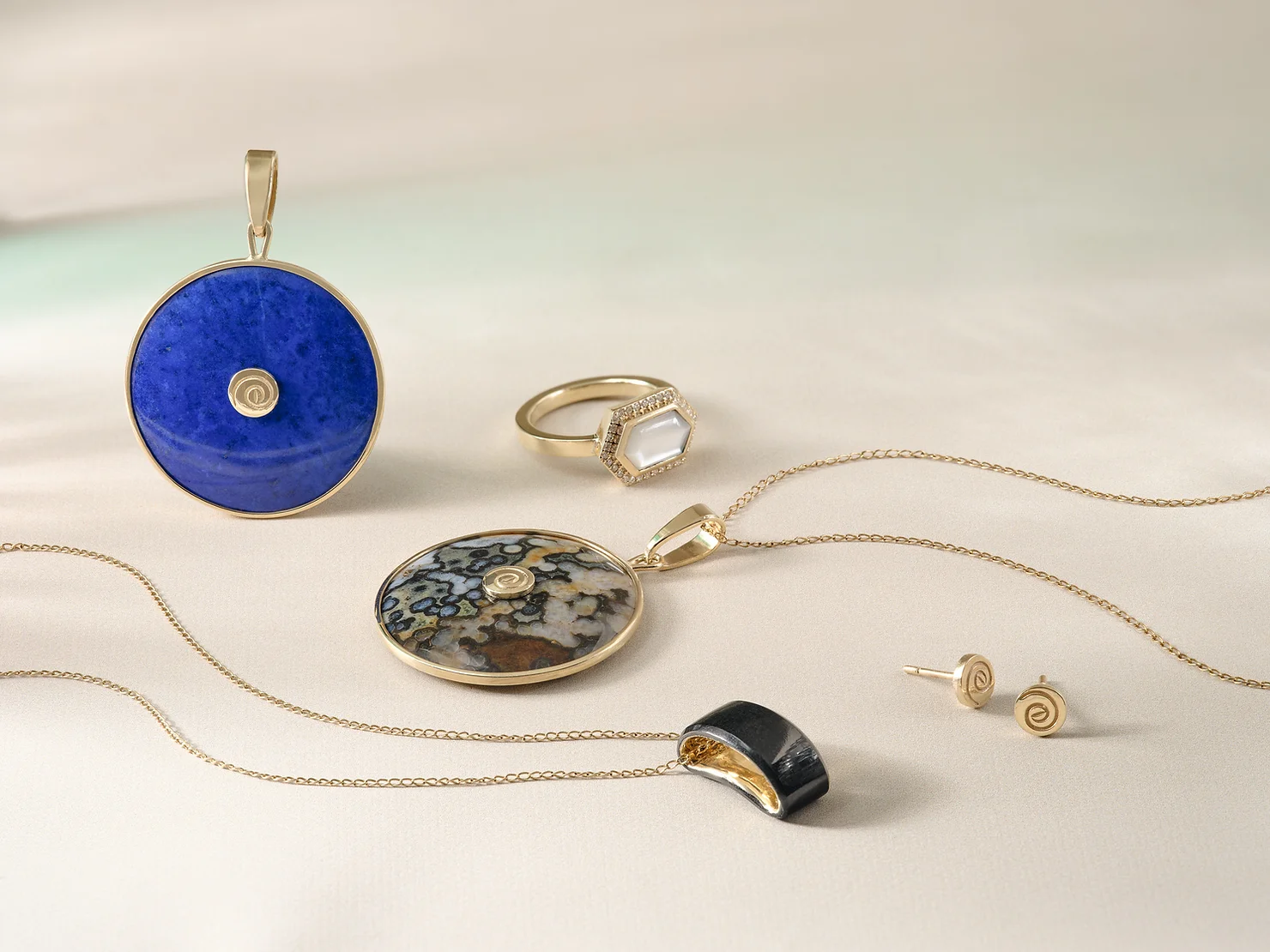This month we’re collab-ing with Alisa Thorp, co-owner of Mercurius Jewelry. Alisa has a great message to share with us about the challenges and advantages that small businesses can have when it comes to environmental sustainability.
 Alisa Thorp
Alisa Thorp
November 2023 collab · 5 min listen
I’m Alisa Thorp, and I’m the co-owner, with my husband Dave, of Mercurius Jewelry.
We are an ethical fine jeweler based in Oakland California. Our business is values-based - in that we make all of our decisions, from how we operate to the materials we use, through the lens of our value system. We also frame success in terms of how successful we can be in supporting communities and causes that are important to us.
When Dave and I met we both had a strong commitment to sustainability and environmental conservation.
He was the first certified Green jeweler in Alameda County. I had a degree in Environmental Biology, with a focus on systems ecology. When I began working with Dave in the jewelry industry, questions of environmental impacts and human rights were naturally foremost on my mind.

The jewelry industry has made major strides in the last two decades towards transparency, but we still have a long way to go. There are responsible options now that didn’t exist 10 or 15 years ago.
One of our major areas of focus is sourcing gold responsibly.
For us, this means supporting artisanal and small-scale gold mining where the resource extraction is done at the discretion of the local community for the benefit of the local community. Additionally, we are especially interested in supporting efforts to eliminate the use of mercury in gold extraction.
Being in the business of luxury goods that have a history of leaving source communities impoverished is a really challenging framework.
Another area of focus for us is not only breaking that cycle, but also communicating with jewelry consumers about why it matters. This can be really challenging - and there is a lot of resistance from the jewelry industry at large about having truly honest conversations - because we want jewelry to be all about beauty, glamour and celebration.

One advantage that small businesses who want to take beneficial actions have is that they can be very nimble in their decision making.
When there are fewer stakes and stakeholders, you can make a more radical choice about how you conduct your business. Companies like ours can be really nimble in the choices we make and programs we support - we can be early adopters of smaller initiatives in our industry. We don’t have the same kind of reporting responsibilities as a big corporation.
For this collab with Decarbon, the first action I recommend taking is knowing the source of the gold in the next piece of jewelry that you buy.
It’s important to understand that recycled gold claims can be misleading. If the only information you can find from a jeweler is that they use recycled gold, be wary of greenwashing. Gold has never been thrown away, so unlike other recycled products, reclaiming gold doesn’t divert anything from the waste stream. Many people hope the choice to use recycled will have an impact on mining, unfortunately due to its financial value this is not the case - gold mining will continue to feed the market demand.
And if all of the ethically minded consumers were to divest from gold mining, who will invest in small-scale miners and mining communities? Who will support land remediation and eliminating mercury use? This isn’t to say that recycled gold is inherently bad - but look for a post-consumer content certification.
Look for more information on why the jeweler is making the choice they make to use that gold.

In terms of your personal jewelry, another action you can take is to select a piece of jewelry you don’t wear, and consider turning it into something else.
If you have precious mined materials sitting in a box somewhere, instead of buying a new thing, have a local craftsperson make something for you. Many of us have heard about the downsides of “fast fashion”, and there is also “fast jewelry” out there. One of the incredible things about precious metals and gems is that they are almost infinitely reusable. So if you don’t like the style of a piece you inherited from your grandma, use those legacy materials to create something you’ll love. You can’t do the same with those gold-plated or gold-filled fashion jewelry pieces. It may mean a slightly higher investment, but you’ll have a piece of jewelry for life.
And finally, this is an action that applies to jewelry and beyond. Become “greenwashing” savvy.
An exciting thing in the news right now is that the EU is about to vote on a pretty comprehensive ban on greenwashing in marketing. Hopefully this will have an influence on US markets as well. When I see a general claim like “Responsible”, “Sustainable” or “Climate-Friendly”, my first step is to dig deeper on the website or packaging for an explanation that illustrates specific steps or standards. If there’s nothing to back up the general claim, that’s a greenwashing red flag.
I don’t think every business - especially small businesses - need to be perfect. But they do need to be transparent and back up the claims they make. For example, when I don’t have complete knowledge of a material’s journey from mine to market, that is part of what I disclose to my client. Additionally, a portion of our profits go to organizations that support development in small-scale mining communities. You can find this information on our website.
So on our homepage, it might just include keywords like “ethical jewelry” and “responsible sourcing”, but when you go looking you find our explanation of how we back up these claims.
Avoid companies that liberally use these keywords without any evidence of actual actions. And support businesses that are transparent about the actions they take!
.
All images are provided by Mercurius Jewelry.



